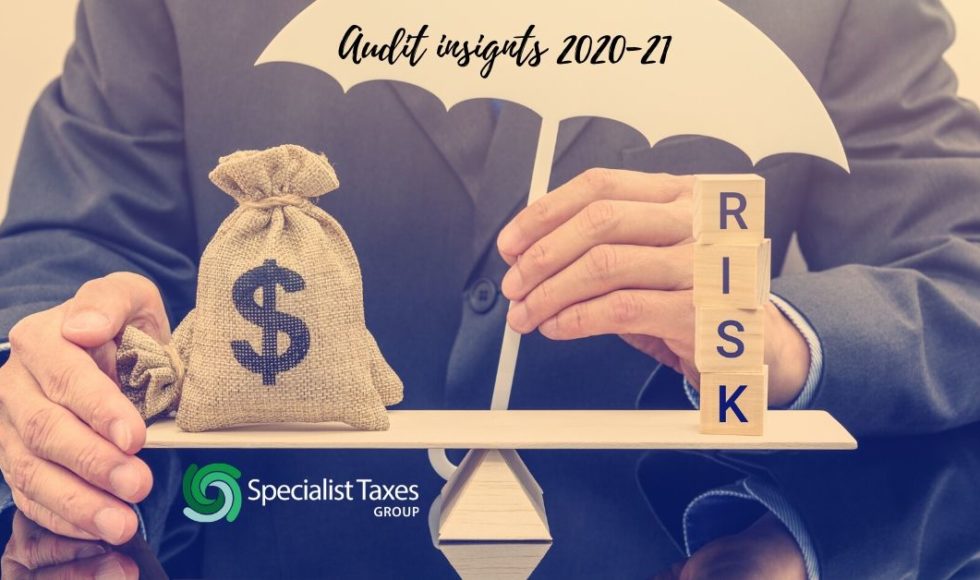Tax audits and investigations are back in full swing following the new year and we’ve summarised the audit activities we’ve seen to date in this article.
Its important for taxpayers be aware of the audit focus areas for 2020-21 so that they can:
- address any similar issues which upon reflection may be prevalent in their organisation;
- be better prepared in the case of an audit; and
- strengthen their Tax Risk Management policies, procedcures and documentation.
We’ve listed below our 3 key audit tips that taxpayers should be aware of:
1. Audits may begin inconspicously
Audits begin as “desktop” audits or information questionnaires which allows the authorities to better target key areas of concern. Therefore it is critical to engage your advisor as soon as any contact is made with the respective authorities to maximise the chances of a satisfactory outcome.
2. Sophisticated data-matching is increasing audit success
The ATO, State Revenue Authorities and WorkCover Authorities are continuing to broaden their use of sophisticated data-matching techniques for more effective audit selection. This increases the likelihood that an area of non-compliance will be investigated.
3. Audit results may impact your compliance in other jurisdictions/taxes
Investigation results are frequently shared between the abovementioned Authorities for non-compliance detection and in that regard it is important to consider the wider flow on effects that non-compliance in one area may have over others. Addressing non compliance in other areas prior to an investigation could be the difference between significant penalties and interest or remission.
We’ve provided a brief summary of some of the initial audit focus area’s across the various indirect taxes and jurisdictions.
Australian Taxation Office
The ATO’s audits have been focusing on:
- Justified Trust: taxpayers without a Tax Risk Management policy for more detailed & intense audit
- FBT: Car Parking, Meal Enteratainment, Motor Vehicles
- Superannuation: amnesty legistlation in progress with an opportunity to obtain penalty remissions
- GST: Black economy, low value goods, personal use assets
- Contractor v Employee arrangements: PAYG, Superannuation, FBT.
The ATO, State Revenue Authorities and Fair Work Ombudsman are working closely together to identify non-compliance across various taxes and jurisdictions
State Revenue & WorkCover Authorities
State Revenue Authority audits have been focused on:
- Victoria: Contractors, Grouping, Employee Share Schemes, underdisclosure of Fringe Benefits
- New South Wales: Investigating discrepancies with ATO, Fringe Benefits, Salary & Wages & Contractors
- Queensland: Employee Share Schemes, Salary Sacrifice Arrangements, Grouping, Contractors, ETP’s
- South Australia: Contractors, Grouping, Rebate Scheme
- Western Australia: Labour Hire, Large Employers, Contractors
- Tasmania: Contractors, Grouping, Rebate Scheme, Fringe Benefits
- Australian Capital Territory: Salary Sacrifice Arrangements, Grouping, Contractors
- Northern Territory: Grouping, Refund Requests, Contractors, late lodgers
Fair Work Ombudsman
The Fair Work Ombudsman has been busy enforcing the Fair Work Act 2009 by protecting independent contractors and employees that have been unfairly treated.
It has setup a ‘Sham Contracting Unit’ thanks to the Governments $9.2M fund granted in the 2019-20 Federal Budget and we’ve already noticed its audits on the rise.
In 2020 expect the Fair Work Ombudsman to continue to ramp up its reviews of contracting arragements. Click here to read a recent case.
Expect an increase in contractor audits in 2020 thanks to the Governments $9.2M fund granted in the 2019-20 Budget to create a ‘Sham Contracting Unit’
How can taxpayers prepare?
For taxpayers that:
- do not have a documented Tax Risk Management policy;
- have not undertaken a recent ‘Tax Compliance review’; or
- have considered the risk areas outlined above
the ATO and State Revenue Authorities will see this as an indicator of higher risk and are more likely to ‘red flag’ the taxpayer, which will result in a more detailed and intense review.
Therefore, we recommend taxpayers:
- Implement a robust Tax Risk Management policy;
- Review its compliance in relation to the risk areas outlined above; and
- Seek a ‘Tax Compliance review’ if one hasnt been performed in the last 2 years.

